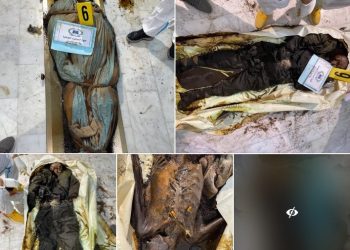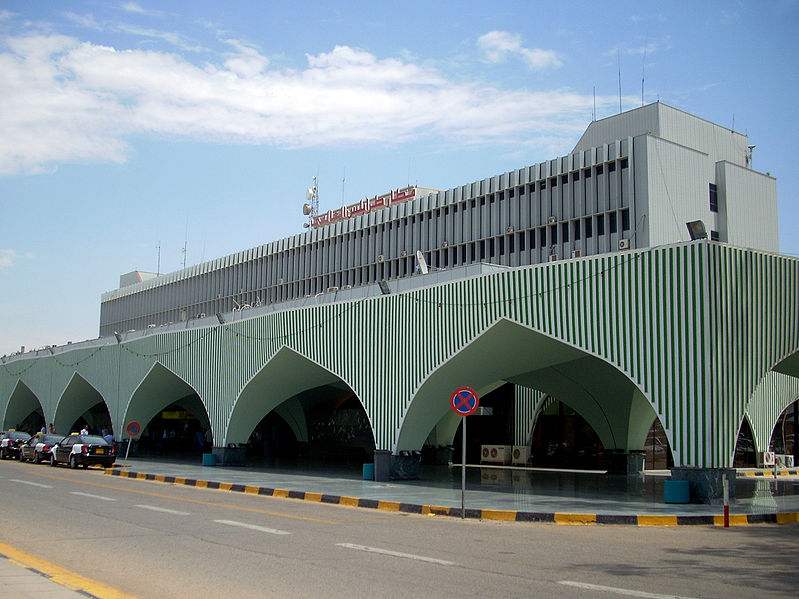By Sami Zaptia.
Tripoli, 31 July 2014:
A political tug of war is taking place and confusion continues to reign over the intended . . .[restrict]date and proposed place for the hand over between the outgoing General National Council (GNC) and the newly elected House of Representatives.
GNC head Nuri Abusahmain renewed his call yesterday for the newly elected House of Representatives to meet with the GNC for an official handover ceremony on Monday 4 August in the capital Tripoli, as per GNC Law No. (56) 2014.
Libya’s state TV station reported on its website that Abusahmain said that the handover ceremony could not be held in Benghazi due to the poor security situation in Libya’s second largest city.
GNC official spokesperson Omar Hamaidan, meanwhile, gave the GNC’s interpretation of the legal grey area over who has sovereignty during this period between the election of the incoming House of Representatives and outgoing GNC, telling Libya’s official state news agency LANA that proposed House of Representatives head Abubaker Baera “did not have the authority to call the GNC to convene for a handover ceremony on Saturday 2 August without authorization by the GNC leadership”.
Furthermore, and most worrying for Libya in view of its current power vacuum and security breakdown, Hamaidan added that the “GNC will continue to exist until the convening of the House of Representatives in an official and legitimate sitting as per the Transitional Constitutional Declaration (of 2011)”.
These statements issued by Abusahmain and Hamaidan yesterday for the GNC to meet the House of Representatives for a handover ceremony on the 4 August and in Tripoli, comes after the anticipated new head of the House of Representatives Abubaker Baera had called on the House of Representatives to meet on Saturday 2 August in Tobruk.
In a statement posted on the House of Representatives new Facebook page yesterday, Baera said that based on the persistent desire of a large number of House of Representatives members from across Libya for the urgent convening of the House of Representatives in order that the House assumes its historic responsibility before the Libyan people during this difficult period that the country is going through, and due to the emergency situation that Tripoli and Benghazi are going through, Representatives are invited to hold a meeting of the House in the (eastern) city of Tobruk on Saturday 2 August.
It will be recalled that Abubaker Baera is chosen as the new temporary head of the House of Representatives automatically by virtue of being the oldest member, as per existing rules in the Transitional Constitutional Declaration.
After the first sitting, it is expected that the House would vote for a new head as well as his deputies, a spokesperson and a rapporteur .
To add further to the confusion, at the time of writing today, in the latest statement posted on the House of Representatives’ Facebook page, Benghazi Representative Isam Jahani said the “it has been officially announced that the House of Representatives will meet in Tobruk on Saturday 2 August”, adding that by the grace of god ” we will make very important decisions at the top of which are a national army and the fight against terrorism and the securing of Libya’s capitals (Benghazi and Tripoli)”
Why Tobruk and not Tripoli or Benghazi?
The city of Tobruk is deemed a compromise and a safe location for the House of Representatives to convene due to the fighting between the various militias/armies in Tripoli and in Benghazi. It is deemed a compromise because there is a public call from the east as well as by Representatives from the east that the new legislature should be housed in the east. This is seen as at least some moral support for the beleaguered city which has experienced much death and violence.
It was also deemed that the GNC had performed poorly- in fact it was loathed by the time it was forced out of power – in Tripoli because of the coercion it had received. It is felt that it was time another city was given a turn in hosting Libya’s legislature in the hope of this leading to a better performing legislature
Moreover, Tobruk has been chosen since the specific attack on the Tibesti hotel recently in Benghazi, the intended location for the House of Representatives, attributed to Ansar Al-Sharia, which was seen as an attempt to prevent the House of Representatives convening in Benghazi.
Equally, the new House members were hoping that by convening in Benghazi they would be out of reach from the various Tripoli based militias which had stormed, blockaded and coerced the GNC over 100 times since its first sitting in 2012.
Which legislature has legitimacy after an election, but before an official handover?
The confusion as to who exactly has the power to set the date and place for the handover ceremony is also caused by a grey area open to differing interpretations as to who is still in power in the lead up to the handover ceremony.
Does the outgoing GNC still hold power and sovereignty until it officially hands over to the House of Representatives, or has legislative power and sovereignty automatically moved over to the newly elected House of Representatives once the High National Election Commission (HNEC) had announced the official 25 June election result?
This may seem splitting hairs over legalistic and formal procedures, however, the real politic on the ground is the ongoing fighting in both Tripoli and Benghazi. In reality there is a race against time, or against the handover ceremony when the House of Representatives is expected to take some kind of real action against the fighting parties – including the possibility of calling for some kind of foreign help.
It is because of this race that a large number of Representatives are keen to convene, irrespective of the acquiescence of the outgoing GNC. However, one Representative from the western region told Libya Herald anonymously that some of his colleagues expressed the fear at their recent meeting in the west that if the House does indeed go ahead and meet without the formal hand over by the GNC, its sovereignty and legitimacy could be challenged – a move that would give birth to a weak legislature – the exact thing that Libya does not need at this critical time, he added.
On the other hand, Representatives are fearful that GNC members allied to the Islamists and the fighting militias in general, may drag their feet in handing over so as to buy time for their militia allies to either achieve or consolidate success on the ground.
The statement by GNC spokesperson that the “GNC will continue to exist until the convening of the House of Representatives in an official and legitimate sitting” worries some members that some GNC members may try to fabricate emergencies to postpone such an official and legitimate sitting. On the ground in the case of Tripoli, a delay would be to allow the Misrata-led officially recognized militias to gain control of Tripoli International airport from the Zintan-led officially recognized militias.
Today, as this article is being written in Tripoli, loud explosion could still be heard coming from the periphery of Tripoli. Yesterday, the fighting had at long last subsided as the various intermediaries eventually succeeded in persuading the two fighting blocs to briefly ceasefire – whilst firefighters attempted to control the raging fire at Brega’s fuel and gas depot off airport road. With the fire seemingly under control, the sound of gun fire recommenced early this morning.
Most analysts speculate that the Islamist bloc fared poorly in the 25 June elections and are therefore expected to lose much influence and power.
In fact, according to early pronouncements by some House of Representatives members, militias such as Ansar al-Sharia are expected to be outlawed and maybe even declared as “terrorist” groups.
Moves are also expected to be made to dissolve the various militias with links to the moderate/liberal National Forces Alliance and to the Muslim Brotherhood-linked Justice and Construction party. Currently, not only do these militias get paid from the state coffers, but they also enjoy official state recognition.
One of the anticipated moves by the House of Representatives is to declare all militias that do not Disarm, Demobilize and Reintegrate, unofficial and have their wages terminated. They will also be asked to leave their various barracks inside the boundaries of main cities. Their members will be asked to either join the regular army or police or return to civilian life.
It is early days for the newly elected and keen House Representatives. Before actually receiving the reins of office, they have sounded bullish. It will be interesting to see how focused and determined they remain once they meet and the realities of real politic kick in. These realities include having their sessions interrupted by armed militias and being subjected to kidnappings and constant coercion. The recent brief kidnapping of Mustafa Abushagur is a case in point.
[/restrict]









